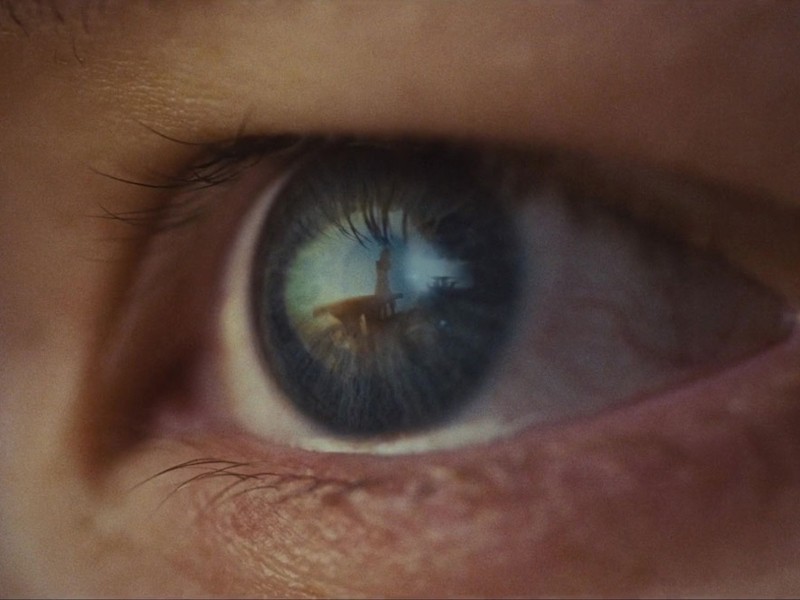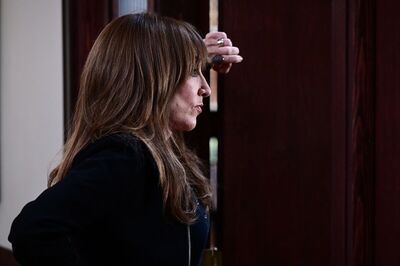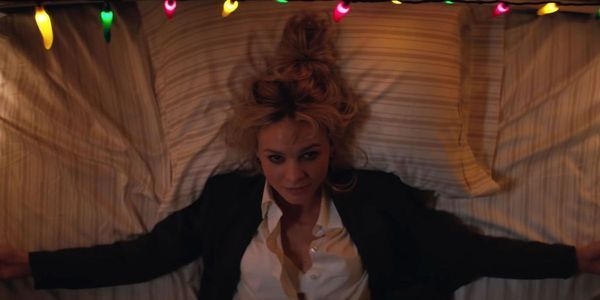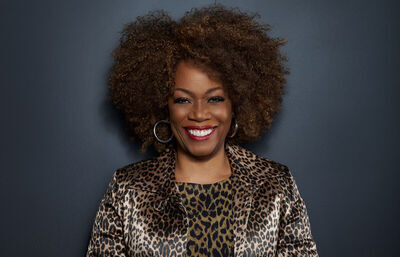‘Euphoria’ Delivers Another Must-Watch Deep Dive
Welcome to Previously On, a column that fills you in on our favorite returning TV shows. This week, Valerie Ettenhofer reviews Euphoria’s second special “bridge episode,” which is all about Jules.
“Without, like, getting melodramatic, I’ve had a really hard six months.” This is what Jules (Hunter Schafer) tells her therapist partway through the second Euphoria special in as many months. What an understatement. As if her relapsed, suicidal girlfriend and violent, catfishing transphobe boyfriend aren’t enough, we learn over the course of this episode that Jules has also been dealing with her addict mother and some complicated feelings about her own gender and sexuality.
Like its Rue-focused counterpart, this hour is billed as a “bridge episode” between the show’s first and second seasons. The episode, which is titled “Part 2: Jules” with the intriguing subtitle “Fuck Anyone Who’s Not A Sea Blob,” is structured around Jules’ first session with a new therapist. Unlike the Rue (Zendaya) special episode, this one — also shot during the COVID-19 pandemic — isn’t particularly beholden to a single setting or limited cast. The therapy session with Dr. Nichols (Lauren Weedman) is the root from which the episode grows, but impressionistic scenes unfold on all sides of it like gorgeous tendrils.
By not repeating the risky, two-person-play gambit of Rue’s episode, Jules’ chapter loses the actor showcase aspect that makes its predecessor so laudable. It still deserves high praise, though. The line about Jules’ tough few months perfectly sums up what works so well about this episode. The soft-spoken transgender teen is a chronic under-reactor. Her formative life experiences have taught her to meet most situations with a shrug or a smile, and this makes her role among a Skins-like cast of attention-seekers and bold personalities particularly suited to deeper character study.
Since so much of Euphoria’s first season presents Jules through Rue’s rose-tinted glasses, it was easy to imagine her as the sort of heavenly creature she dressed up as for Halloween. This hour shows us a version of Jules who is alone for the first time and gives us some of the series’ best character development to date in the process.
Early in the episode, we see the type of sensational, self-contained shot that series creator Sam Levinson has become known for: an easily excerpted moment that’s bound to find immortality on teen-fandom sites like Tumblr. In it, scenes of Jules and Rue’s relationship play out in the reflection of her unblinking eye while Lorde’s song “Liability” is heard in the background. Eventually, a tear forms in her eye, blurring the screen we’ve become enraptured with.

It’s a great shot, but its heady romantic overtones quickly evaporate as Jules begins to open up. Rue is only one piece of her story, and, in a surprisingly realistic portrayal of a therapy session, we finally learn more about all the other pieces. Just as the tear blinks away the love story, so the rest of the episode wipes away our attachment to the more stylized, melodramatic Euphoria we were used to in a pre-COVID world.
In Euphoria’s first season, everything seems like life or death in the way that only adolescence does. Rue’s special episode, with its frank discussions of addiction and suicide, makes those stakes feel more real than they ever have before. Ironically, despite its own themes of death and catastrophe, Jules’ hour is the most grounded the series has ever been. The character is a complicated one; she’s decidedly mature and self-possessed, but she’s also acutely aware of her status as a teenager with outsized emotions.
Schafer plays those emotions beautifully. For much of the episode, Jules doesn’t cry, shying away from the topics that she knows will upset her and initially giving honest but guarded answers to her therapist’s questions. When she finally breaks, Schafer’s furrowed brow and trembling lip are subtly devastating.
From here on out, the episode takes on a darker tone that matches Rue’s chapter. A creatively shot, fantastically cross-cut love scene turns twisted when Jules’ mystery beau turns into psychotic bully Nate (Jacob Elordi), who covers her mouth as she screams. She reaches for Rue, but she’s already gone, into a bathroom where she overdoses. Nightmares, fantasies, and recontextualized memories all come together in a revelatory look inside Jules’ mind. By episode’s end, Jules is so much more than the glowing vision of love Rue has at times imagined her to be. She’s real, flawed, and in many ways, painfully relatable.
“Fuck Anyone Who’s Not A Sea Blob” ends on the same note of crushing despair that Rue’s hour does, but it feels uncharacteristically bleak for someone as resilient as Jules. A more peaceful conclusion comes about earlier when she envisions herself at the beach as she speaks about her transness and femininity: “I wanna be as beautiful as the ocean,” she says. “The ocean is strong as fuck and feminine as fuck and both are what makes the ocean the ocean.”
Instead, we end with Jules in the rain, the ocean transformed and divided above her. Hers is an essential chapter of this series’ story, and its unresolved ending is a keen reminder that Euphoria Seaso 2 can’t come soon enough.





